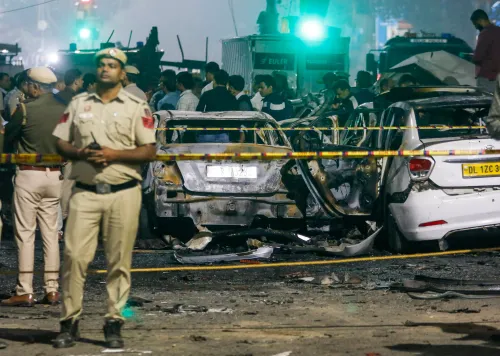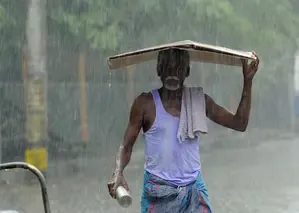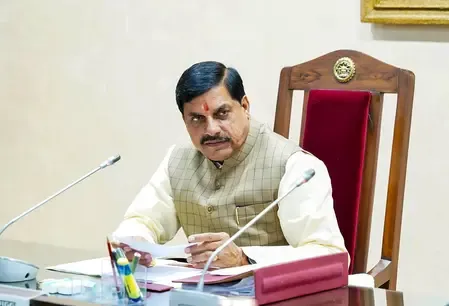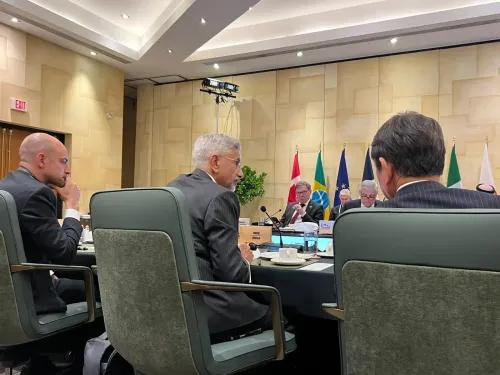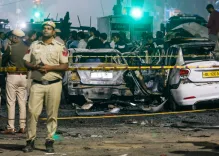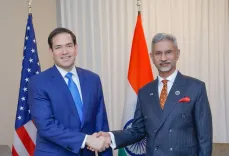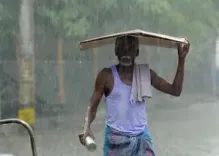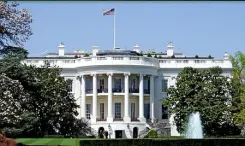What Led to the Delhi Blast? Cops Intensify Probe into Three Critical Hours.
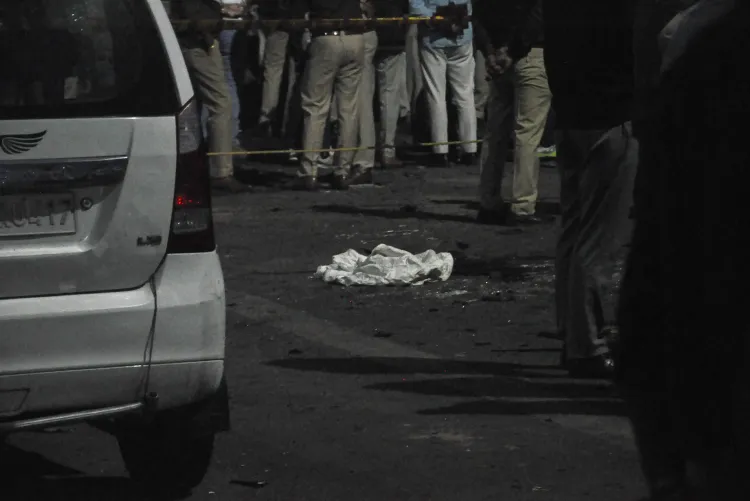
Synopsis
Key Takeaways
- Explosion occurred near Red Fort Metro Station.
- Three hours before the blast remain a mystery.
- Suspect Dr Mohammed Umar identified.
- Authorities investigating connections to terror networks.
- Security measures heightened across multiple states.
New Delhi, Nov 11 (NationPress) The probe into the explosion near the Red Fort Metro Station in Delhi has honed in on three essential elements, with one of the most enigmatic being the unaccounted three hours that the chief suspect lingered in the Red Fort parking area prior to the blast.
Delhi Police, along with central security agencies, are diligently reconstructing the sequence of events that culminated in the deadly explosion, which resulted in the deaths of at least eight individuals and left many others injured.
Preliminary investigations indicate that the Hyundai i20 implicated in the blast was driven by Dr Mohammed Umar, a resident of Koil village in Pulwama, Jammu and Kashmir. Sources confirm that CCTV footage from the vicinity shows Umar at the wheel of the vehicle.
The explosion transpired on Monday evening near Gate No. 1 of the Red Fort Metro Station. The Haryana-registered Hyundai i20 detonated suddenly, sending shockwaves through this high-security area. Following the incident, security agencies have heightened alerts across Delhi, Uttar Pradesh, Bihar, and Mumbai, intensifying surveillance around public venues and religious sites.
Another significant angle of the investigation involves a network associated with three doctors from Al-Falah University in Faridabad, including Dr Adil Ahmad Rather and Dr Mujammil, who have recently been apprehended for alleged connections to terrorist organizations.
The authorities suspect that the arrests of these individuals may have instigated panic within the group, potentially prompting Umar to execute the explosion earlier than planned.
Investigators are now concentrating on pivotal inquiries regarding the three vital hours Umar spent in the Red Fort parking lot.
During those hours, was Umar engaged in phone conversations? Did he meet any associates in Delhi or Faridabad? Was the area surrounding the Red Fort part of a reconnaissance operation? Was he anticipating peak hours when crowds would be at their largest? -- these questions remain under investigation.
Records indicate that the vehicle entered the Red Fort parking area at 3:19 p.m. and exited at 6:22 p.m. By this moment, Umar reportedly was aware that law enforcement had apprehended his associates and that he might soon be targeted.
Nevertheless, the lingering question is why he chose to risk staying in one of the most heavily fortified zones in Delhi for three hours. Was he waiting for a sleeper cell contact or logistical support?
Authorities are looking into how the accused procured substantial amounts of explosives and firearms. Investigators are also assessing whether these materials were delivered in separate shipments and the duration of the suspect's operations within the network.
The officials are also investigating the other participants of the Telegram group utilized for communication by the suspects, as well as the possibility of other active sleeper cells remaining operational.
A third critical issue troubling investigators is the atypical nature of the explosion. Unlike previous detonations in Delhi, which utilized sharp objects like nails, ball bearings, or blades to enhance damage, no such materials were found at the site.
Nonetheless, the explosion's impact was catastrophic -- vehicles were obliterated, including the one in which the blast occurred, along with several others in its vicinity.
This has left investigators confronting another conundrum -- how did the explosion yield such extensive devastation without even creating a crater in the road, which is customary in high-intensity blasts?
As the ongoing investigation connects the explosion to an expanding terror network with roots in Jammu and Kashmir and Haryana, security agencies are diligently exploring every avenue to trace the origin of the explosives and uncover the full extent of the conspiracy behind the blast.

